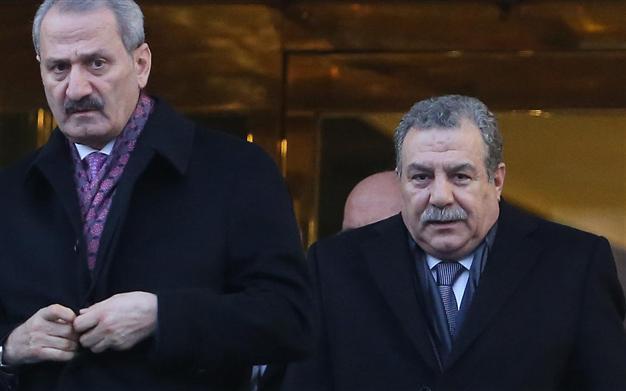Turkish Parliament's inquiry panel report rejects validity of corruption evidence
Bülent Sarıoğlu ANKARA

Former Economy Minister Zafer Çağlayan (L) and former Interior Minister Muammer Güler, both of whom are accused of corruption.
A report submitted by the corruption inquiry panel to the Turkish Parliament has suggested that the voice recordings of four former ministers cannot be counted as legal evidence and therefore there was no reason to send the four to the Supreme Council.The corruption inquiry commission concluded its four-month-old work last week, deciding not to send four former ministers to the top court upon the majority votes of the panel’s Justice and Development Party (AKP) members.
The commission has submitted its final 210-page report to the office of the Parliament Speaker, which is expected to distribute it to all lawmakers in days. Parliament is expected to vote on whether to send former ministers Egemen Bağış, Zafer Çağlayan, Erdoğan Bayraktar and Muammer Güler to the Supreme Council on Jan. 16.
“Even if carried out upon a judge’s decision, information received from wiretapping cannot be used as evidence,” the report stated.
The police operation into corruption allegations was launched after an Iranian businessman, Reza Zarrab, was believed to be in financial relations with the former ministers. As part of the investigation, the police conducted widespread wiretapping into Zarrab’s phone conversations with these ministers and their close relatives, however the commission declared such wiretapping as “null and void.”
“Offenses being charged could not be proven by the legally approved evidence. All findings from technical surveillance, wiretapping, and recording are null and void,”
The report also stated that evidence provided did not convince that these ministers were bribed by the Iranian businessman, and there is no sufficient suspicion to open a case against them.
“There is no evidence proving that crimes such as embezzlement or corruption were committed,” it said.
















